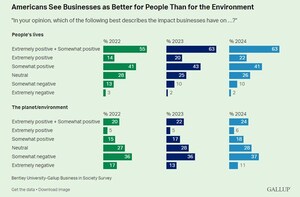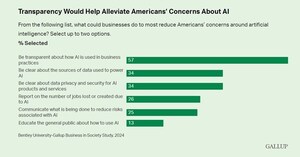WALTHAM, Mass., Aug. 20, 2015 /PRNewswire-USNewswire/ -- It has been more than a decade since a new drug was approved for the near 5 million Americans suffering memory loss from Alzheimer's disease. Research from the Center for Integration of Science and Industry at Bentley University offers a hopeful view of the prospects for new Alzheimer's drugs.
Alzheimer's research has experienced prominent setbacks over the past decade, when promising drugs designed to reverse abnormalities in the brains of patients with the disease failed to show therapeutic benefit. An article published in the August issue of the journal Clinical Therapeutics, titled "Patterns of innovation in Alzheimer's disease drug development: a strategic assessment based on technological maturity," suggests that the failed drugs entered clinical trials before the underlying technologies were sufficiently mature.
"Research shows that very few clinical trials succeed when the underlying basic science is immature," said Dr. Jennifer Beierlein, lead author on the paper and a fellow in the Center for Integration of Science and Industry. "We have constructed analytical models for the maturation of research on Alzheimer's disease, specifically research on the role of accumulated amyloid proteins in Alzheimer's affected brains. Our study shows that there are reproducible patterns to biopharmaceutical innovation, and that Alzheimer's research is now entering a window where new therapies should begin to emerge. Our conclusion is that it would be a mistake to give up on drugs targeting amyloid proteins just as the science is becoming established."
Dr. Fred Ledley, founding director of the Center for Integration of Science and Industry, notes that in recent weeks, there have been some very promising signs coming from early clinical trials of new drugs being developed by Biogen, Lilly and Roche.
"There's a looming global epidemic of Alzheimer's disease on the horizon. Finding new medicines to treat, and potentially cure, this devastating disease is one of the great scientific challenges of the 21st century," said Dr. Kenneth I. Kaitin, professor and director of the Tufts Center of the Study of Drug Development at Tufts University School of Medicine, and guest editor of an Alzheimer's-themed special section in the August issue of Clinical Therapeutics. "It is well established that neuropsychiatric drugs are the most challenging therapeutic class of medicines to develop, in terms of time, cost and risk, and therefore particularly important that we make informed, strategic decisions when investments are made in developing new drugs.
The authors on this study included Dr. Jennifer Beierlein, Dr. Laura McNamee, Dr. Michael J. Walsh, and Dr. Fred Ledley. This work was supported by a grant from the National Biomedical Research Foundation.
THE CENTER FOR INTEGRATION OF SCIENCE AND INDUSTRY at Bentley University brings together faculty, students, and visiting scholars in an interdisciplinary effort to understand and accelerate the translation of scientific discoveries to create public value. The Center is an environment for thought leadership and interdisciplinary scholarship spanning basic science, data analytics, business, and public policy. The Center was created in 2012 through a grant from the National Biomedical Research Foundation to Bentley University. For more information, visit www.bentley.edu/sciindustry and follow us on Twitter @sciindustry.
BENTLEY UNIVERSITY is one of the nation's leading business schools, dedicated to preparing a new kind of business leader – one with the deep technical skills, broad global perspective, and high ethical standards required to make a difference in an ever-changing world. Our rich, diverse arts and sciences program, combined with an advanced business curriculum, prepares informed professionals who make an impact in their chosen fields. Located on a classic New England campus minutes from Boston, Bentley is a dynamic community of leaders, scholars and creative thinkers. The Graduate School emphasizes the impact of technology on business practice, in offerings that include MBA and Master of Science programs, PhD programs in accountancy and in business, and customized executive education programs. The university enrolls approximately 4,100 full-time undergraduate, 140 adult part-time undergraduate, 1,430 graduate, and 43 doctoral students. Bentley is accredited by the New England Association of Schools and Colleges; AACSB International – The Association to Advance Collegiate Schools of Business; and the European Quality Improvement System, which benchmarks quality in management and business education. For more information, please visit www.bentley.edu.
Logo - http://photos.prnewswire.com/prnh/20130219/DC61345LOGO
SOURCE Bentley University
Related Links
WANT YOUR COMPANY'S NEWS FEATURED ON PRNEWSWIRE.COM?
Newsrooms &
Influencers
Digital Media
Outlets
Journalists
Opted In






Share this article